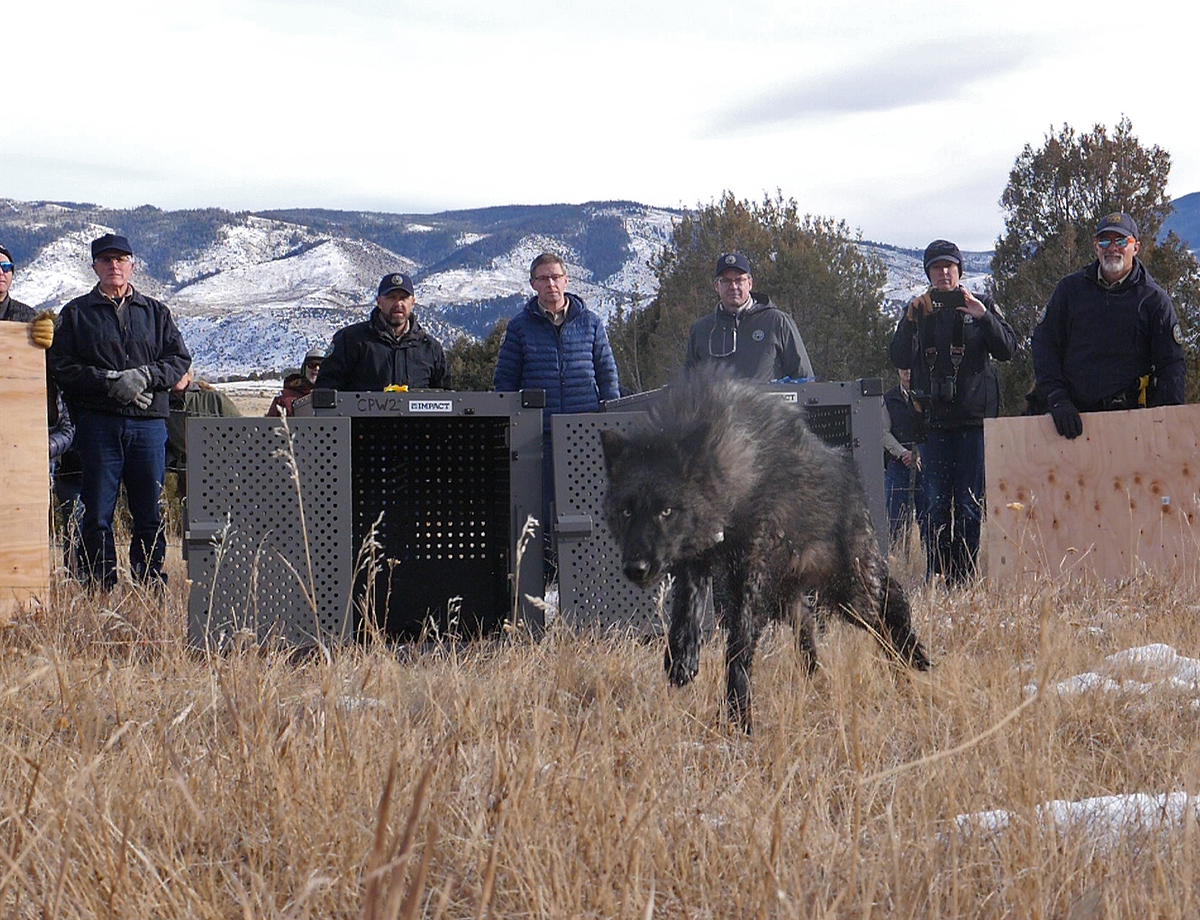

Update 5.02.2018 — New allegations have been made against DSA vocal department instructors Scott Shively and Robert Styron. The teachers have been placed on administrative leave while officials review the complaints and determine next steps. Our original story continues below.
--
An investigation into alleged abusive teacher behavior has led to different outcomes for the elite dance and vocal programs at the Denver School of the Arts.
The dance instructors resigned after an investigation. Vocal teachers Scott Shively and Robert Styron returned to their classrooms after receiving what school principal William Kohut described in a letter to parents as “appropriate action.”
Families were told January 12, 2018 that both teachers were placed on administrative leave. A week later, Shively returned to work and escorted students to the Colorado Music Educators Association annual meeting and to the Colorado All State Choir festival. Styron was back to work in six weeks, February 22.
Complaints filed by students and parents allege a pattern of discrimination, harassment and retaliation against students with emotional or mental disabilities, as well as humiliation and intimidation. Documents obtained by CPR News include allegations of emotional abuse and manipulation, inappropriate teacher student interactions and one teacher making sexually inappropriate comments in front of students.
Multiple students allege the teachers were verbally abusive and bullied students to elicit high performance. Others say the vocal program relied on a fear-based methodology, with students regularly told by both teachers that they were replaceable. One student said she relished Styron’s high standards, but public criticisms of children could be so personal and demeaning it felt like he was “invalidating them as human beings.”
In addition to 10 written complaints obtained by CPR News, more than 30 students, parents and former staff were interviewed concerning accusations levelled against the educators. Denver Public Schools refused a request under Colorado open records law for a copy of the investigation, citing privacy concerns. Principal Kohut and the two vocal teachers did not respond to requests for an interview.
Denver Superintendent Tom Boasberg said a detailed investigation was conducted.
“The fact that a concern was raised does not necessarily mean that that concern was verified or that concern was corroborated,” he said. “And so every concern was looked at closely and where concerns were verified, there were actions taken with regard to those concerns.”
Three months after the teachers returned and two days after CPR News interviewed Boasberg, a letter from Principal Kohut sent to DSA students and parents listed the outcomes of the investigation and the training all DSA teachers have received. Additionally, Kohut acknowledged that many families had fears about reprisals if they spoke up.
The letter states:
During this process, we repeatedly heard that some families were not comfortable sharing their concerns. In fact, some waited until after their students had graduated to voice their complaints, fearing retaliation. Other families were uncertain about whether their students had been treated appropriately, particularly in areas where they themselves had never received instruction or training.
We want to state in no uncertain terms our commitment to the safety of our students. We absolutely prohibit any practices that place our students’ emotional, mental or physical health in jeopardy. If you have any reason to believe this may be occurring, we ask that you immediately contact the educator involved, the administration at DSA or the district’s family helpline at 720-423-3054. We will not tolerate retaliation against students or families who report such concerns.
While some current and former students agreed to speak on the record about their experience in the vocal department, others insisted on anonymity due to fear of retaliation.
Fear And Intimidation
Since she was in first grade, Kyla Wilson dreamed of attending the Denver School of the Arts. It was intended as a first step to a career on Broadway. Competitive auditions are a part of admittance to DSA and Wilson finally got in – in the eighth grade — but by December of her sophomore year she “didn’t feel safe anymore” and felt like she had to get out.
It wasn’t an easy decision. The school is also praised for its college preparatory academics and Wilson loved her academic teachers.
“They’re some of the best people you’ll ever meet,” she said. “They’re funny and they’re creative and they’re so supportive and I couldn’t have asked for better teachers.”
She said she had many great experiences in the vocal department and was seen by one teacher as a favorite. But the bad days, she said, were “really, really bad.”

Wilson and about nine other students filed complaints in December and January with the school and Denver Public Schools. Wilson, who at the time suffered from panic attacks, recalled that students were often berated, reprimanded or belittled in front of peers or alone.
“But when you’re in the basement where the vocal rooms are and they closed the door and you’re the only ones in there, that’s when you really, really get scared,” she said.
Wilson’s mother, Jennifer Jordan, said there were several instances when her daughter was isolated in that basement room as the teachers showed an “intentional infliction of emotional distress.”
Both recalled an incident when Kyla finished an audition and “she got her stuff and turned around to go, he [Shively] had shut the door and then stood in front of it,” Jordan said.
Kyla Wilson said the duo began grilling her about why she had been out sick months earlier. The reason was a private medical matter as Wilson was being treated at the time for anxiety and depression.
“Mr. Shively is standing in front of the door which is the only way out of the room,” she said. “And so he didn’t step aside… They just wanted more and more information. They just kept prying and prying and I was in tears the entire time.”
In another incident, Wilson alleged Shively grabbed her by the wrist and pulled her in an office to question her. She was unable to leave for half an hour, during which time she had a severe panic attack and struggled to breathe. Other students filed complaints speaking to similar incidents, that of being questioned in that room, with one teacher blocking the door, the students crying as the two teachers became angrier.
A Greater Weight Of Accusations Against One Teacher
Some students make a distinction between Shively and Styron, with the former being a much quieter teacher who didn’t yell. They say Shively could be very kind and supportive, offering help or emotional support if a student needed it. Others maintain that he practiced similar “bullying” techniques with certain students and was more “passive aggressive” in his criticism.
The most serious allegations based on complaints CPR News reviewed focus on Robert Styron.
The vocal teacher was described in conversations as an “amazing choir director,” but unpredictable. Several students report that Styron would scream at students, bang on the piano, and slam books down. Several students report frequent outbursts including Styron leaving the classroom in anger, slamming the door. Students say it was difficult to concentrate on learning as they were worried about when they would be the next to be ridiculed.
The result the students say was that they kept their mouths shut.
“Oh my God, we never stuck up for the kids while they were being yelled at,” said an anonymous student, who was not a complainant and is fearful of speaking out, “because it’s scary to be like, ‘Hey, stop that!’”
There is another reason students stayed quiet. Multiple students agreed that Styron frequently told them he’s good friends with principal William Kohut. Current eighth-grade student Aitiana Wilson, no relation to Kyla Wilson, and not a complainant, said that Styron would tell them “don’t worry about telling the principal, he already knows what I’m doing and he supports it.”
One common theme in at least 10 interviews with students and parents was retaliation; either a verbal reprimand or in the case of Styron, grades allegedly dropping if a parent intervened or a complaint was made to administrators.
“It’s a huge red flag. It’s a grooming technique setting children up for abuse,” according to one complainant.
Complainant letters make multiple allegations about Styron’s references to mental illness. One anonymous student, who fears retaliation, said the teacher would make “really passive aggressive comments about how if he is provoking people’s anxiety and if they can’t handle it, they should just go to a mental hospital.” Another time there was “a joke about ‘flashing light disease,’ which is epilepsy… He’s very insensitive to the needs of his students who do have mental illness.”
Aitiana Wilson also had an example of Styron’s purported insensitivity to students with behavior disorders, like Attention Deficit Hyperactivity Disorder.
“He would ask if they took their meds this morning,” Wilson said, she continued that he often makes fun of one of those students. “He was like, ‘stop acting like an animal [student’s name].’
One allegation filed in a complaint states that when quizzing a student with a speech impediment, Styron would countdown from 5 to 1. When the student couldn’t get the sentence out, he’d say, “too slow, NEXT.”
Aitiana Wilson’s mother was with her as she spoke about her experiences.
“It’s just not a good environment and it puts a lot of people under a lot of stress and you just don’t feel good,” Aitiana Wilson said. “I just don’t know why they would let any people like that go back to what they were doing.”
Wilson, who will be leaving the Denver School of the Arts at the end of the academic year, kept a list of statements made by Robert Styron to her class. She wrote them down because she found them disturbing:
- This whole choir is on crack.
- Are you dyslexic?
- I want to beat your mom up.
- You guys are stupid.
- I’m technically a Creole because I’m from New Orleans. I can say the ‘N’ word but you guys can’t.
Several students reported both teachers making insensitive comments regarding race and religion, which made students of color and others uncomfortable.
Racially And Sexually Charged Comments
Formal complaints refer to “insensitive” comments about people’s origins, “mistaking one black student for another without apology” and Robert Styron telling a black student he was “blacker than them.”
Atiana Wilson recalled a time where Scott Shively looked at the only African-American student in the class and said, “you must know how to play the African drums. Right? You have to know how to play the Africans drums.”
In complaints filed, other students allege the two teachers often told girls to cover up because they were distracting. One complainant said Styron often commented in class on how girls looked, if their outfits showed skin or cleavage. She said a comment he made about appreciating the female form at any age made her uncomfortable and that she actively watched how she dressed after that. Another student, a graduate, said Styron told a student teaching assistant how pretty her hair was and he would touch it.
According to formal complaints filed with the district and school in January and other students interviewed, Styron is alleged to have cultivated inappropriate teacher-student relationships. Complainants and others interviewed say by embracing the professional rigor of the program students were allowed to advance to leadership positions in choirs and they became student teaching assistants.
Other students say teaching assistants were pushed regularly to reveal information about the personal and social lives of students, who was using drugs, who was dating whom, and then announce to students that they knew “everything that was going on in their lives.”
One, who wrote a draft of a formal complaint but was ultimately too afraid to send it, said if you “didn’t tell Mr. Styron all of the information about your friend and all of the drama, then he would hate you and if he hated you, you would have an awful experience in the class.”
Perceived Transgender Discrimination
One family became very involved with school leaders to negotiate a way to keep their transgender daughter enrolled at Denver School of the Arts. Lexi Reynolds auditioned for the program as a boy before she made the gender transition. She said Styron offered her a spot in the jazz choir. When Reynolds arrived at school, Scott Shively’s first comment to her was about the size of her chest.
Reynolds said both teachers asked her to sing wearing a man’s suit. Shively said she should also use the male bathroom.
“I would definitely say I felt discriminated against,” Reynolds said.
Styron removed her from the jazz choir. A district statement and Colorado state law support the rights of transgender students to be free from bullying, discrimination and harassment. DPS accommodates students based on the gender with which they identify.
“They really wanted her tenor voice,” Lexi Reynold’s father Doug said. “That’s what she tried out for. They loved it. They wanted it in their choir, but they couldn’t come to grips with the fact that that tenor voice was not coming from a boy, that it was coming from somebody wearing a dress. And so they continued to try alternative methods to try and figure out how to get around this problem that we didn’t even see existed.”

The school had 20 plus transgender students and Reynolds said there was never any pushback from the other teachers to accept her “except [with] Mr. Styron and Mr. Shively.”
Reynolds was ultimately allowed into the women’s choir but alleged that the humiliation and verbally aggressive comments from Styron continued.
“He said specifically that he shouldn’t have let me into the program because I was just a man with a man’s voice,” she said.
Rebecca Reynolds, Lexi’s mother, said the experience caused anxiety attacks and a hospitalization. They never filed a complaint because Lexi wanted to stay in the vocal department, but she couldn’t be in the room with Styron as it provoked panic attacks.
A school official privately counseled the family that it was in the “interests of Lexi’s survival [that] she should no longer be in that class,” Rebecca Reynolds said.
Lexi Reynolds was allowed to finish out the 2017 school year and graduate without the vocal major. She’s since been accepted to the music program at the University of Colorado Denver.
Teachers Who Shaped Professional Futures
There are students who say they’ve had a positive experience and benefited from exposure to professional-level critiques and working artists. Students spoke up in a similar fashion for the instructors in the dance program — that high standards and expectations prepared them for the arts.
After students are accepted into the vocal program, they’re placed in one of four choirs and, as DSA’s website states, “…receive rigorous, pre-conservatory instruction, including vocal technique, choral methods, sight singing, music theory and more.” Styron introduced students to new music forms — jazz, pop, classical, Broadway — and taught strong technical and professional skills that most choir students don’t get exposure in until college.
Shilo Gold, who is now a professional singer, said she couldn’t have asked for a more beautiful or positive high school experience. Her teachers were hard on students, but in the best ways she said.
“They created a space of respect, and one in which we wanted to be present and on time,” Gold said. “I largely attest my courage and resilience to keep fighting for a career in music to my middle school and high school experience. I will say that art school in general is not for the faint of heart, but neither is a career in the arts.”
In 2017 district video, Scott Shively praised students. At one point, Brendan Doyle, a 2001 graduate, credited Shively with helping him find direction in life and ultimately becoming a teacher.
“I don’t think that maybe he even realized at that point, like, how impactful, just being there was for me,” Doyle said in the video.
Some past graduates relate that criticism then was always constructive, such as not being in tune, needing to practice more, or not being in stage appropriate attire.
Jackie Smook graduated in 2015 and currently attends the Boston Conservatory at the Berklee College of Music studying musical theater. She doesn’t condone any behavior related to the current allegations, but for the years she attended Denver School of the Arts, she loved both vocal teachers.
“They are so passionate about students becoming great musicians and great singers and they want focused, wonderful human beings coming out of DSA ... talented, strong individuals,” Smook said. “They don’t want to make you someone who doesn’t understand discipline, making sure you’re accountable for yourself and others, being on time to things and be respectful to everyone around you.”
She recalled a time where she was completely unprepared for a vocal jury in front of her peers. Shively and Styron made her apologize in front of her classmates. For her it was teachable moment. If they had just said, ‘OK you messed up,’ Smook said, then “she would not be the person she is today.”
While she does acknowledged Styron could get angry or frustrated, Smook said it was targeted at the whole class, not individual students and everyone seemed to appreciate his coaching.
“I think they go above and beyond for the students,” she said.
Melody Gallagher, a 2012 graduate, credited her time in the vocal department as key to her personal development and it set her up for college at the San Francisco Conservatory of Music. As president of the choir for several years, she had a close relationship with the two teachers.
“Everybody always wanted to do their best for them,” she said. “And I always felt like they wanted to do their best for us.”
It’s not easy as a high schooler to “get up and sing three songs in a foreign language in front of a panel of four to five people and be told everything you’re doing wrong,” Gallagher said. But positive and negative feedback is something students need to learn how to deal with.
“DSA helps to weed out the people who find out ‘OK, well this is actually a lot more work than it is fun,’” she said. “They prepare you to be a professional musician.”
Some parents of current students also report a positive experience. Emily Conklin said she feels bad for anyone who has had a bad experience, but her eighth-grade daughter has excelled both as a performer and as a person in the vocal department.
“She has really thrived under both of the directors and when things have been difficult, she’s sought resources to work them through,” Conklin said.
She said her daughter Isabella said Robert Styron is one of the best teachers she’s ever had and she has not felt belittled or emotionally abused.
Seeking Accountability
Kyla Wilson’s mother, Jennifer Jordan, said it was hard for her to admit how long she allowed the allegedly abusive behavior to happen. Her daughter told her not to get involved.
“If I kept nagging him about it, ‘you know, don’t do this please, don’t do this to her,’ that she [Kyla] felt that he would just take it out on her even more,” she said. “So I did not. And I should have. As a mother, I felt guilty for not speaking up sooner.”
Jordan and other parents who filed complaints believe that Principal William Kohut should be accountable.
“The teachers have tremendous power over whether kids stay or go in and they know it and I think gravely have taken advantage of it,” said a parent who documented a meeting she had with Kohut in May that detailed many of the alleged abuses. “Styron has, but also more importantly Kohut, considering the fact that he [Styron] is still around, and, and not really seeming to do anything about it.”
Another parent said when she complained in spring of 2017, principal Kohut and assistant principal Miranda Odum told her: “Do you know how long these teachers have been here? You can’t just get teachers like this from anywhere. The disciplines that they have and the background that they have, it would be almost impossible to replace them.’ And when you’re up against that, you just stop saying anything because because you know it’s not going to change.”
Denver Superintendent Tom Boasberg said he doesn’t know how widespread the investigation on the vocal program was beyond complainants.
“We attempted to speak to each person who raised concerns. In some cases folks were willing to talk about those concerns and some cases they were not,” he said.
Eighth-grader Atiana Wilson has six more weeks at Denver School of the Arts. She believes some students are still afraid.
“After they came back from their administrative leave, one of my very close friends, just the sight of looking at Mr. Styron, she had a panic attack and she had to leave the room and go to the nurse,” she said. “But they didn’t really do anything either. She just told [her] to drink some water and go back down.”
Read More: Teacher Investigation Fractures Denver School Of The Arts’ Renowned Dance Program








